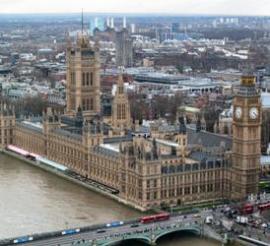A director at G4S has told MPs it is an “uncomfortable truth” that some subcontractors on the Work Programme are not being used by prime contractors as they are not doing a good job.
Sean Williams, managing director of G4S employment support services, was giving evidence on the Work Programme to the Work and Pensions Select Committee yesterday, along with representatives from the Shaw Trust and CDG, Rehab Group and the Employment Related Services Association (ERSA).
Committee member MP Graham Evans asked the witnesses about reports that subcontractors were getting no or few referrals from primes on the Work Programme.
Willams told Evans that it was an “uncomfortable truth” that at times tier two subcontractors were not being used as the service they provided made no difference to individuals on the Work Programme.
Evans then asked Williams why primes had contracted tier two providers, often small or voluntary sector organisations, if they were not going to use them.
Williams said G4S had made it clear to tier two subcontractors that they may not get any referrals and had put this correspondence in with their bid to the Department of Work and Pensions (DWP).
“To prevent bid candy I’d encourage the DWP to ensure that primes publish their bids in full and make them accountable to them.”
Earlier in the hearing, Williams had said G4S had removed subcontractors for underperformance.
Commenting on bid candy, Kirsty McHugh at ERSA, said charities which had publicly complained that they were used as bid candy were disappointed as they had discussions with primes about the Work Programme but didn’t end up with contracts:
“I think that talk about bid candy has come from organisations which entered into conversations about the Work Programme but were not subsequently signed onto contracts and these organisations are disappointed about it.”
She added that as referrals from clients on employment support allowance (ESA) had taken time to come through on the Work Programme, it had appeared that the voluntary sector was not getting any referrals.
“Primes should have communicated this better,” said McHugh. “It led to suspicion from the voluntary sector. But primes were not keeping clients to themselves. They did not have them to start with.
Later in the session McHugh said that charities had been “overpromised” about the Work Programme by government.
Williams from G4S added that while charities were often good at helping people and making a difference, it was not the same as getting someone back to employability.
He also said that a lack of good data on welfare-to-work meant it was hard to know which organisations could deliver good services.
MPs also asked about the amount of risk that subcontractors were burdened with on the Work Programme. All organisations giving evidence argued that risk had to be shared on the Programme.
They also brought serious issues with the Work Programme, such as being referred clients with terminal cancer.
Shaw Trust was also criticised by an MP for its use of volunteer mentors on the Work Programme.

| Want access to all civilsociety.co.uk content?Subscribers gain access to all expert advice, analysis, surveys, special reports and the full archive of content from as little as £43.20 per year. Find out more... |









